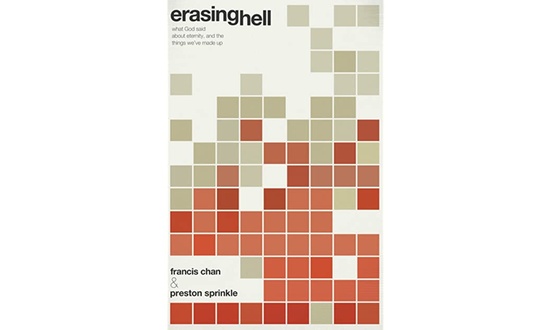The vague and tenuous hope that God is too kind to punish the ungodly has become a deadly opiate for the consciences of millions. It hushes their fears and allows them to practice all pleasant forms of iniquity while death draws every day nearer and the command to repent goes unheeded. ~A. W. Tozer
In The Knowledge of the Holy, a book that profoundly impacted me when I came to Christ as a teenager, Tozer speaks of the attributes of God, including those we’re tempted to minimize. Whether we affirm the holiness and justice of God—and the doctrine of Hell, which is inseparable from them—may be the biggest test of whether the Bible or our culture is our true authority.
Without Hell, perpetrators of evil throughout the ages would get away with every contemptible deed. But even if we acknowledge Hell as a necessary punishment for evildoers, we rarely see ourselves as deserving it. After all, we are not Hitler, Stalin or Mao. (Are we?)
God responds, “There is no one righteous, not even one. . . . All have turned away, they have together become worthless; there is no one who does good, not even one” (Romans 3:10-12, NIV).
We consider ourselves good people.
We are dead wrong. To see the face of evil, we need only look in the mirror.
When most people speak of what a terrible notion Hell is, they act as if it involves the suffering of innocent people. But nowhere does the Bible suggest that the innocent will spend even a moment in Hell!
Tozer wrote, “What comes into our minds when we think about God is the most important thing about us.” Many modern Christians have reduced Him to a single-attribute God. Never mind that the angels in God’s presence do not cry out, day and night, “Love, love, love,” but “Holy, holy, holy is the LORD Almighty” (Isaiah 6:3, NIV).
By all means, we should rejoice in God’s mercy and love. But we must also recognize that our Lord is relentlessly holy, righteous and just. “Your eyes are too pure to look on evil; you cannot tolerate wrong” (Habakkuk 1:13, NIV).
I have spoken at length with a few Christian writers who have reinvented the “good news.” They see it not as an offer to be saved from everlasting punishment, but as an assurance that every person, regardless of whether they trust Christ in this life, will spend eternity in heaven.
They rob the gospel of its stakes and urgency. They imagine they’re paying God a compliment for being so tolerant, but it’s not our job to airbrush Him or give Him a facelift.
Ironically, an exclusive emphasis on love strips God’s love of its wonder. Without an understanding of the reality and consequences of sin, people aren’t surprised by the idea that God loves them—why shouldn’t He? But Scripture regards His love for us as remarkable, precisely because of our sin: “God demonstrates His own love toward us, in that while we were still sinners, Christ died for us” (Romans 5:8).
When John Newton wrote the hymn “Amazing Grace,” he understood what made God’s grace amazing—he was a Hell-deserving “wretch.” When we minimize our sinfulness, we minimize the power and wonder of God’s grace. We undermine what God redeemed us for: “in order that in the coming ages he might show the incomparable riches of his grace, expressed in his kindness to us in Christ Jesus” (Ephesians 2:7, NIV).
What Tozer said 50 years ago could have been written last week:
A lot of people have talked about the goodness of God and then gotten sentimental about it and said, "God is too good to punish anybody," and so they have ruled out Hell. But the man who has an adequate conception of God will not only believe in the love of God, but also in the holiness of God. . . . So let’s not write dreamy poetry about the goodness of our heavenly Father who is love—"love is God and God is love and love is all in all and all is God and everything will be OK." That’s the summation of a lot of teaching these days. But it’s false teaching.1
Tozer saw clearly what we need to see. God has already composed his message—it’s called the Bible. He doesn’t need speechwriters, editors and PR people. He needs faithful messengers.
Though Hell is dreadful, it is not evil. Hell is moral, because a good God must punish evil.
Some say, “Maybe Hell exists, but surely it’s not eternal.”
Jesus said, “Then they will go away to eternal punishment, but the righteous to eternal life” (Matthew 25:46, NIV). Christ uses the same Greek word for “eternal” (aionos) to describe the duration of both heaven and Hell.
The increasingly popular doctrine of annihilation merely confirms what most unbelievers already think—that their lives end at death, and therefore no judgment awaits them. We can certainly understand the appeal of such an expectation, but the fact is that Jesus spoke repeatedly of an eternal Hell, describing unquenchable fires and the worm that never dies (see Mark 9:48).
In Luke 16:19-31, Jesus taught that an unbridgeable chasm separates Hell from paradise. The wicked remain conscious, retain their memories, long for relief, cannot leave their torment, and are offered no hope. Our Savior couldn’t have painted a bleaker picture.
Atheist Bertrand Russell wrote, “There is one very serious defect to my mind in Christ’s moral character, and that is that He believed in Hell. I do not myself feel that any person who is really profoundly humane can believe in everlasting punishment.”2
Shall we trust Jesus or Bertrand Russell? For me, this is not a difficult choice.
If there isn’t an eternal Hell, or no one will end up there, Jesus made a huge mistake. If we cannot trust Jesus’ teaching about Hell, why should we trust anything else He said, including His offer of salvation?
We may pride ourselves in thinking we’re too loving to believe in Hell. But it’s not loving to be silent when people are told the lie that they don’t need to turn to Christ in this lifetime to be saved. Are we claiming to be more loving than Jesus, who with outrageous love bore the horrific penalty for our sin?
The Bible speaks of an eternal Hell as something that should motivate unbelievers to turn to God, and believers to share the gospel with urgency.
By denying Hell, we deny the extent of God’s holiness. Worse yet, we deny the magnificence of God’s grace. If the evils He died for aren’t big enough to warrant eternal punishment, then perhaps the grace He showed us on the cross isn’t big enough to warrant eternal praise.
The more we believe in all of God’s attributes, including not only love and grace but also holiness and justice, the more Hell will make sense to us.
Tozer wrote, “Death fixes the status of the man who loved his sins and he is sent to the place of the rejected where there is for him no further hope. That is Hell, and it may be well we know so little about it. What we do know is sufficiently terrifying.”3
If we are as loving as we claim, we’d better learn to speak Christ’s truth in love—telling people that if they reject the best gift of a holy and gracious God, purchased with His own blood, what remains, in the end, will be nothing but Hell.
Notes
1. A. W. Tozer and David E. Fessenden, The Attributes of God, Volume 1: A Journey into the Father's Heart (Camp Hill, PA: WingSpread, 2003), pp. 107–108.
2. Bertrand Russell, Why I Am Not a Christian and Other Essays on Religion and Related Subjects, edited by Paul Edwards (New York: Touchstone, 1967), p. 17.
3. A. W. Tozer, God Tells the Man Who Cares (Camp Hill, PA: WingSpread, 1992), p. 39.
Photo by Annie Spratt on Unsplash




